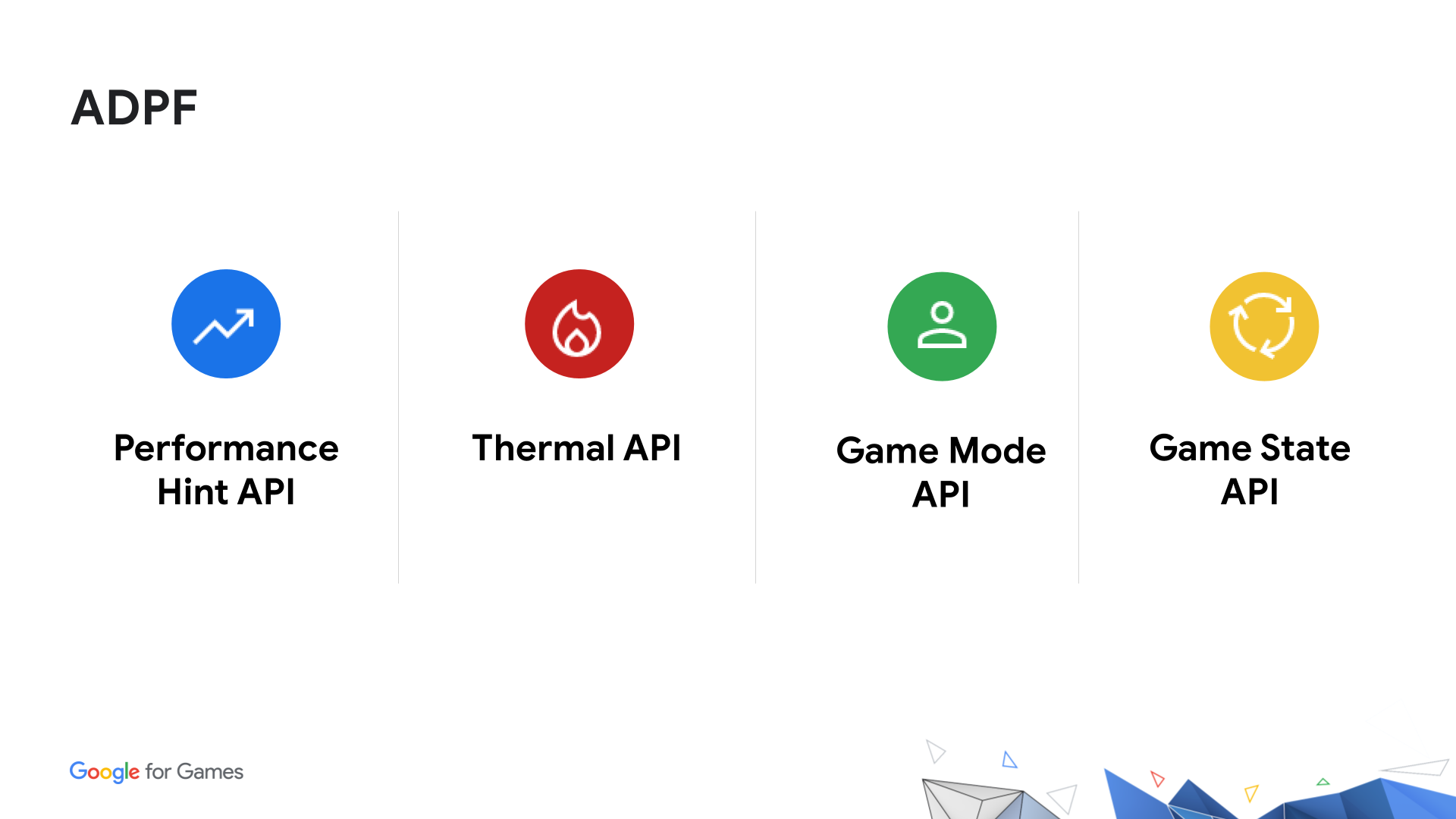샘플 앱
ADPF 샘플 앱은 ADPF API의 기본 사용법을 보여줍니다.

샘플은 ADPF getThermalHeadroom API 및 열 상태 API를 사용하여 기기의 열 상태를 표시합니다. 또한 앱은 Thermal headroom과 Performance Hint Manager API를 기반으로 워크로드를 동적으로 변경하여 렌더링 스레드 성능을 제어합니다.
Codelab
C++ 게임에 적응성 기능 통합 Codelab에서는 원하는 속도로 따라할 수 있는 간단한 단계를 통해 ADPF 기능을 게임에 통합하는 방법을 안내합니다. Codelab을 마치면 다음 기능을 통합하고 기능을 더 잘 이해하게 됩니다.
- Thermal API: 기기 열 상태를 리슨하고 기기가 열 쓰로틀링 상태가 되기 전에 반응합니다.
- Game Mode API: 플레이어의 최적화 환경설정 (성능 극대화 또는 배터리 절약)을 파악하고 그에 따라 조정합니다.
- Game State API: 시스템에 게임 상태 (로드, 재생, UI 등)를 알리면 시스템에서 리소스 (I/O, CPU, GPU 등)를 적절하게 조정할 수 있습니다.
- Performance Hint API: 시스템이 스레딩 모델과 워크로드를 알 수 있도록 하여 시스템이 적절하게 리소스를 할당할 수 있도록 합니다.

개발자 스토리
개발자 성공사례에서 게임 개발자가 Adaptability API를 사용하여 FPS 안정성을 높이고 전원 소모를 최적화한 방법을 알아보세요.
- 카카오게임즈, Android Adaptability를 통해 FPS 안정성 96% 달성
- Gameloft, Game Mode API를 사용해 기기 전력 소비량 70% 감소, 플레이 시간 35% 증가
- Android Game Development Kit (AGDK) 업데이트: 적응성 및 성능 기능
- GDC Vault - Google 개발자 회의: Android 동적 성능 프레임워크로 게임 성능 개선
- MediaTek, Android SoC의 동적 성능 개선
- NCSoft Lineage W, ADPF를 사용하여 지속적인 성능 개선 및 열 제한 방지
- Unreal Engine에서 Android 동적 성능 프레임워크 (ADPF)를 시작하는 ARM
- 넷마블 게임즈: ADPF를 통한 실적 최적화
